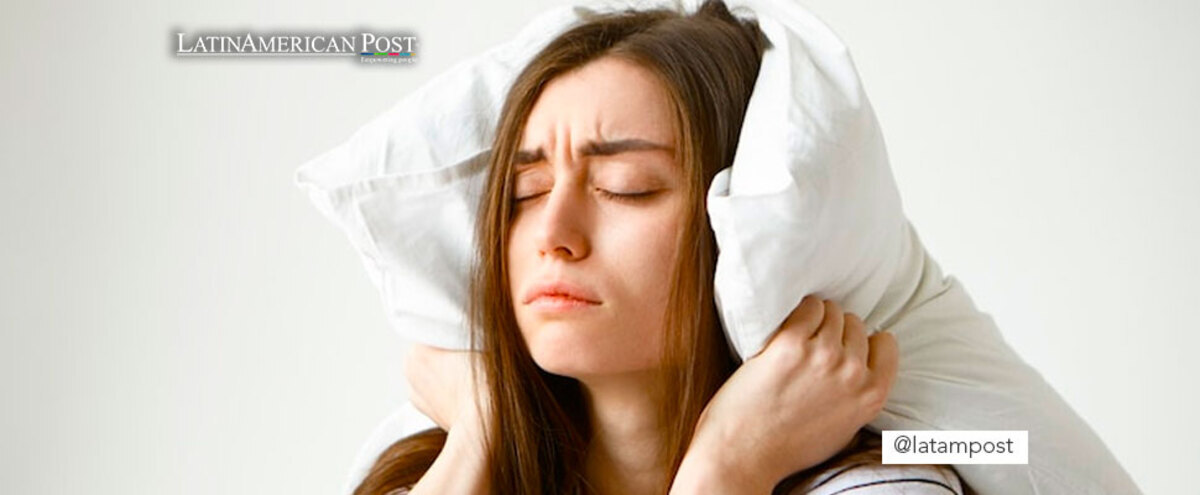Adolescents’ Insomnia and Insufficient Sleep: A Growing Problem
According to several studies, lack of sleep can lead to mental and cognitive illnesses, especially in early stages of life such as childhood and adolescence .

Photo: Freepik
LatinAmerican Post | Christopher Ramírez
Escucha este artículo
Leer en español: Insomnio en adolescentes e insuficiencia de sueño: un problema creciente
According to an article from the American Academy of Pediatrics (AAP ), children of ages 6 to 12 should sleep a total of 9 to 12 hours a day, which should include any naps they may or may not take throughout the day. For their part, adolescents between the ages of 13 and 18 should do it between 8 and 10 hours a day.
Now, what the experts say is one thing and what is seen in real life is quite another. The truth is that, on many occasions, variables such as sex, socioeconomic level and puberty status of adolescents can have an impact on the way they sleep and, most importantly, the full time in which they do it. Insomnia in adolescents is increasing more and more.
According to a study published in The Lancet, "children of the latest generation often report getting less sleep" than they really should. For those in charge of this research, it was crucial to know, beyond whether children and adolescents were sleeping poorly or well, what was the effect of their sleep time on their cognitive abilities and mental health.
"In this study (…) we obtained data from a population-based sample of children aged 9 to 10 years from 21 US study sites," they explain in the specialized article.
Thus, after two years of research and analysis (2018-2020), it was possible to conclude that lack of sleep among minors can not only lead to fatigue, but this in turn would have consequences for their learning and health. In this sense, negative consequences on the mind were found, such as depression; as well as on thought and crystallized intelligence (breadth and depth of a person's acquired knowledge).
Similar results were shown by a study published in the academic journal ScientiAmericana, which focused specifically on the "relationship between sleep quality and indicators of anxiety and depression."
In this case, the research was carried out in South America, specifically with 100 adolescent students from a public school in Capiatá, Paraguay, and yielded the following results:
- 78% of the students analyzed were considered "bad sleepers", which increased the population number of adolescents with mental problems (minimal or high).
- Therefore, it is not uncommon for the study to report that 76% of the students had anxiety, while 52% had some degree of depression. In both cases, the diseases could be shown from a mild degree to a more serious one.
- In addition, it was recorded that lack of sleep, although it does not present radically opposite figures between men and women, does act more severely among female students. "Statistically significant differences were observed between these two groups with respect to the indicators of anxiety and depression, in both cases the women scored higher," explains the study.
Finally, the researchers were able to conclude what could have been known from the beginning, even before starting the study: "poor sleep quality can be considered a risk factor for the appearance of indicators of anxiety and depression in adolescents ”.
What are the main problems of adolescents at bedtime?
Another study that can provide clarity on the relationship between lack of sleep and mental and cognitive health problems is the "Prevalence of sleep disorders in children and adolescents", published by the Juan N. Corpas University Foundation in Colombia .
According to this research, which took as a population sample "2,548 children and adolescents between the ages of 5 and 19, from public, private, urban and rural educational institutions located in Bogotá, Chía and Boyacá (Colombia)", at least 76% of respondents have sleep disorders.
However, the study also shows that this figure increases according to the age of the respondents, especially in populations that live in high socioeconomic strata or in the city.
However, this report not only contributes to the understanding of the consequences of lack of sleep, but also to the causes that lead children and adolescents to not comply with the recommended schedule.
You can also read: Infographic: Keys to Avoid and Cure Insomnia
Among the main reasons are:
- 50% of those surveyed "do not have a bedtime and do not sleep enough" , either due to school obligations to which they must respond, or anxiety derived from factors such as "fear of the dark, having nightmares or to be victims of small hypnagogic illusions and to be carried away by their imagination. They prefer to carry out other activities that prevent them from complying with a suitable time to go to sleep.
- In addition, there is the negative impact that frequent and indiscriminate use, hours and even minutes before going to sleep, of electronic devices such as cell phones, televisions, computers, consoles, among others, has on the state of sleep . According to the study, at least 52% of children and adolescents said they have problems in the duration, quality and efficiency of sleep whenever they have interacted with these devices just before going to bed.
- There is also adolescent insomnia, that is, continuous episodes of waking up during the night, with a prevalence of 16%.
- Finally, it was reported that 11% said they had physical pathologies that prevent them from breathing normally and therefore prevent them from having a good sleep. Among the most important are rhinitis and asthma. "Because it is related to other sleep disorders, it is recommended that the companions of children and young people observe their sleep patterns to show the presence of snoring and make an adequate diagnosis," concludes this research.




